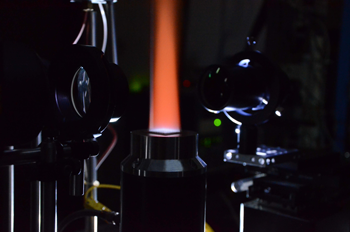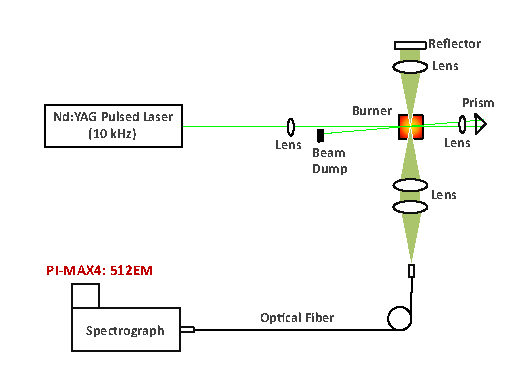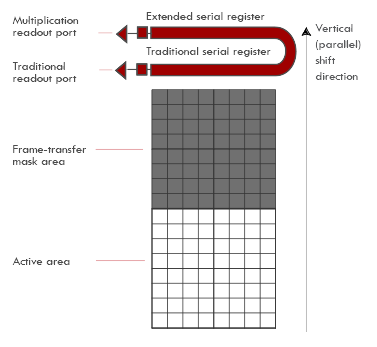Combustion
Combustion is a field of investigation that is vitally important to many daily activities, such as transportation, energy production, and heating among many others. Between fuel consumption and pollutant emissions, combustion affects people and the environment.
Combustion is complex, with both physical and chemical changes occurring throughout the process. Information obtained characterizes any changes in the state of the object combusting.
Many researchers rely on laser-based diagnostic techniques as essential tools in understanding and improving the combustion process. Quantitative data obtained can often facilitate the study of processes such as internal combustion engines and hypervelocity combustion. Advanced spectroscopy techniques are also utilized to further environmental and human health research.

Application Notes
Ultra-High-Speed, Time-Resolved Spontaneous Raman Scattering Spectroscopy in Combustion

In combustion, until recently only two temporal optical gating schemes were available to increase signal-to-noise ratio (SNR) for time-resolved spontaneous Raman scattering (SRS) spectroscopy. Problematic optical background noise could be rejected either by electronic gating with an image intensifier or by using a mechanical shutter. Unfortunately, each of these traditional approaches has its shortcomings.
Image intensifiers, for example, provide excellent optical background noise rejection via…Read Full Article
Technical Notes
emlCCD: The Ultimate in Scientific ICCD Technology
With the rapid expansion of research in areas such as nanotechnology, quantum computing, and combustion, the development of higher-performance time-gated cameras is becoming a necessity. This technical note describes the latest breakthrough in scientific intensified CCD (ICCD) technology: the world’s first emICCD…Read Full Article

